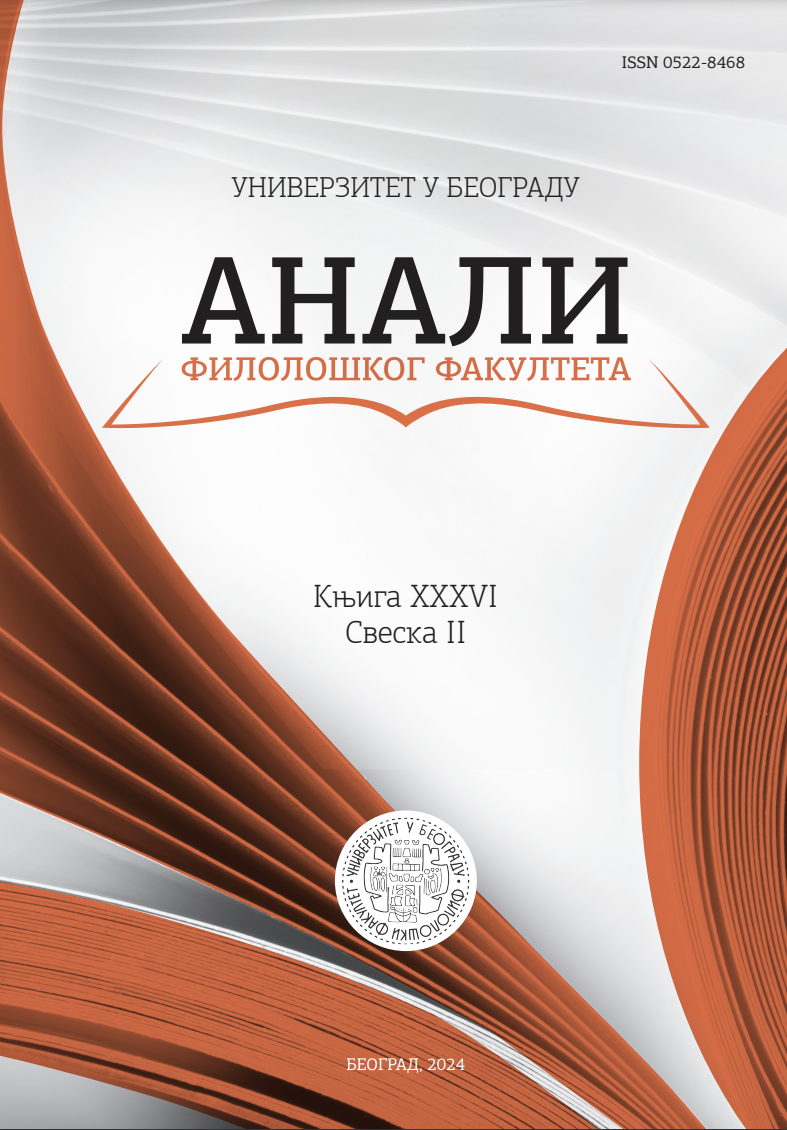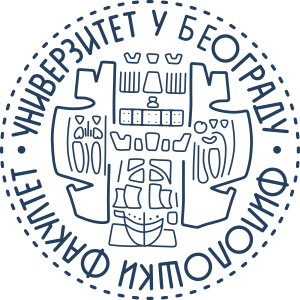Linguistic and Cultural Aspects of the Swedish Honorific Personal Pronoun Ni/ni and its Translation into Serbian
DOI:
https://doi.org/10.18485/analiff.2024.36.2.4Кључне речи:
Swedish, honorific pronouns, translation studiesАпстракт
The use of the Swedish personal pronoun du (Serb. ti) or the use of the honorific personal pronoun Ni/ni (Serb. Vi/vi) in Sweden can be examined from several perspectives. Firstly, for many Swedes, this is a matter of linguistic and social identity, tradition, culture, history, but also of the context of the conversation. Shifts in the use of these personal pronouns have often been conditioned by radical social and historical changes spanning centuries in Sweden. Secondly, when mediating between Swedish and other linguistic and cultural communities, such as the Serbian community, the question of how to address others is also a cultural question, directly related to the differences in understanding the relationship between speakers in the two linguistic and cultural communities. The third perspective relates to a specific translation challenge which, in this case, refers to the confusion about the use of non-honorific or honorific personal pronouns in specific situations even among native Swedish speakers themselves, especially in recent decades. Translators, therefore, must keep up with linguistic, social and cultural trends in the source and target language communities. This paper provides, for the first time in about 150 years of translation exchange between the Swedish and Serbian language communities, an analysis of the socio-historical and linguistic prerequisites for the use of the personal pronouns du (Serb. ti) or Ni/ni (Serb. Vi/vi) in the Swedish language, alongside the tendencies in translation theory and practice in the Serbian language community concerning this linguistic issue.
Downloads
Downloads
Објављено
Број часописа
Рубрика
Лиценца

Овај рад је под Creative Commons Aуторство-Дели под истим условима 4.0 Интернационална лиценца.
Authors who publish with this journal agree to the following terms:
- Authors are confirming that they are the authors of the submitting article, which will be published (print and online) in the journal Anali filološkog fakulteta by the Faculty of Philology, University of Belgrade (Faculty of Philology, Studentski trg 3, 11000 Belgrade, Serbia). Author’s name will be evident in the printed article in the journal. All decisions regarding layout and distribution of the work are in hands of the publisher.
- Authors guarantee that the work is their own original creation and does not infringe any statutory or common-law copyright or any proprietary right of any third party. In case of claims by third parties, authors commit their self to defend the interests of the publisher, and shall cover any potential costs.
- Authors retain copyright and grant the journal right of first publication with the work simultaneously licensed under a Creative Commons Attribution-ShareAlike 4.0 International License that allows others to share the work with an acknowledgement of the work's authorship and initial publication in this journal.
- Authors are able to enter into separate, additional contractual arrangements for the non-exclusive distribution of the journal's published version of the work (e.g., post it to an institutional repository or publish it in a book), with an acknowledgement of its initial publication in this journal.
- Authors are permitted and encouraged to post their work online (e.g., in institutional repositories or on their website) prior to and during the submission process, as it can lead to productive exchanges, as well as earlier and greater citation of published work.





